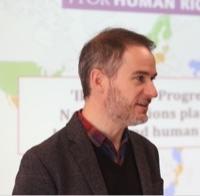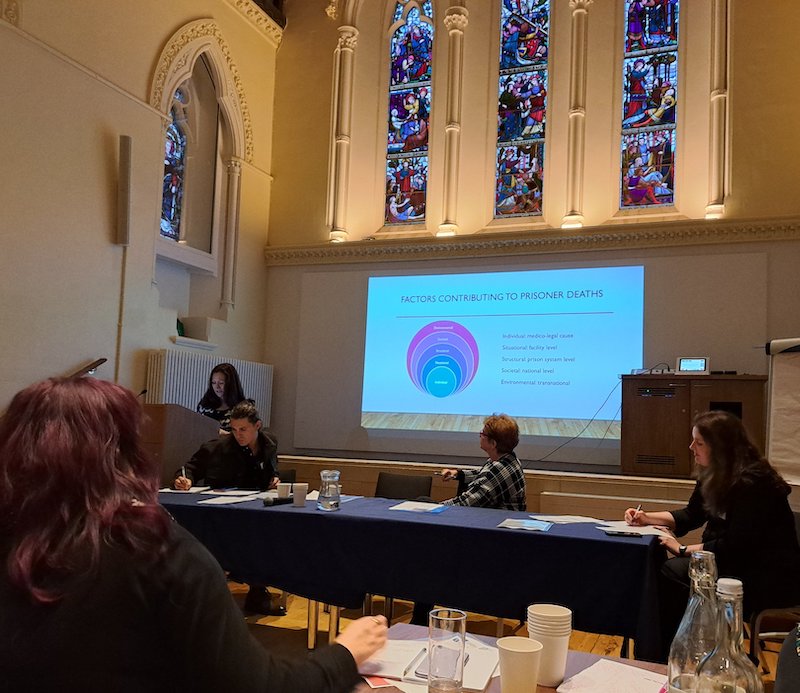-
Courses

Courses
Choosing a course is one of the most important decisions you'll ever make! View our courses and see what our students and lecturers have to say about the courses you are interested in at the links below.
-
University Life

University Life
Each year more than 4,000 choose University of Galway as their University of choice. Find out what life at University of Galway is all about here.
-
About University of Galway

About University of Galway
Since 1845, University of Galway has been sharing the highest quality teaching and research with Ireland and the world. Find out what makes our University so special – from our distinguished history to the latest news and campus developments.
-
Colleges & Schools

Colleges & Schools
University of Galway has earned international recognition as a research-led university with a commitment to top quality teaching across a range of key areas of expertise.
-
Research & Innovation

Research & Innovation
University of Galway’s vibrant research community take on some of the most pressing challenges of our times.
-
Business & Industry

Guiding Breakthrough Research at University of Galway
We explore and facilitate commercial opportunities for the research community at University of Galway, as well as facilitating industry partnership.
-
Alumni & Friends

Alumni & Friends
There are 128,000 University of Galway alumni worldwide. Stay connected to your alumni community! Join our social networks and update your details online.
-
Community Engagement

Community Engagement
At University of Galway, we believe that the best learning takes place when you apply what you learn in a real world context. That's why many of our courses include work placements or community projects.
Crime, Punishment and Rights
Crime, Punishment and Rights
The Crime, Punishment and Rights cluster brings together researchers from the School of Law, the Irish Centre for Human Rights and the Centre for Disability Law and Policy who conduct research, advocacy and impact activities to advance knowledge and call for reform in relation to national, transnational and international criminal justice and liberty deprivation systems. Our research draws on law, criminology, penology and rights and is conducted using a number of methodological approaches (doctrinal, empirical, comparative, critical, legal history etc). Our members actively engage with a wide range of non-governmental organisations, national and inter-governmental agencies and international courts to exchange knowledge.
This website contains examples of our members’ recent activity.
Thursday, 14 March 2024
Dr. Mulgrew and Professor Darcy provide training at the Military College of the Irish Defence Forces
On 11 March 2024, Dr Róisín Mulgrew and Professor Shane Darcy provided training on the Land Command and Staff Course. The course is designed to prepare students to become Senior Officers within the Defence Forces. The lectures were delivered at the Military College in The Curragh Camp. Lectures covered the history, law and principles of international human rights law, the law of armed conflict/international humanitarian law and international criminal law.
Friday, 1 March 2024
Final year Law, Criminology and Criminal Justice students benefited from the wealth of experience of recent guest lecturers who talked about a child sensitive and victimological centred approach to dealing with reports and prosecutions of child sexual abuse. Dr. Mulgrew, module convenor of the Victimology module, was delighted to welcome two experts that advocate for, and help to operationalise, a child-sensitive approach to process and procedures in Ireland to talk to the class on 28 February 2024. Niamh O’Loughlin, social worker team leader and specialist interviewer from Tusla, explained the Barnahus multi-agency and child-centred approach to working with children affected by sexual violence. The Barnahus model enables children to meet with police, medical personnel, social workers and therapists under the same roof. Garda Ken Murphy, an expert in Specialist Interviewing techniques from the Crime Specialist and Operational Skills Unit in the Garda College, shared information about and insights from his experience in interviewing children and persons with intellectual disabilities.
Wednesday, 24 January 2024
Join our inaugural event of the Crime, Punishment and Rights Research Cluster’s film series, in conjunction with Pálás Cinema. Date and Time: Wednesday 31st January at 6.30pm Location: Pálás Cinema Movie: In the Name of the Father The movie depicts the events surrounding one of the biggest miscarriages of justice in British history, the false conviction and imprisonment of the Guildford Four following an IRA bombing. The themes evoked by the movie remain relevant today – the use of interrogation techniques in police interviewing, false confessions, conditions of imprisonment, and the right to truth and redress for both the victims of the bombings and the miscarriage of justice. Purchase Tickets: Click here to purchase a ticket. Students can avail of reduced priced tickets for €5 by signing up for the loyalty scheme (free of charge).
Monday, 11 December 2023
On 6 December 2023, Dr. Mulgrew attended the timely international conference hosted by the Office of the Inspector of Prisons on Developing a Criminal Justice National Preventive Mechanism in Ireland. Dr. Mulgrew, along with LLM students from the Irish Centre for Human Rights, participated in roundtable discussions about the challenges and opportunities for developing a criminal justice National Preventive Mechanism in Ireland under the Optional Protocol to the UN Convention Against Torture. The key note speech was delivered by Judge Mykola Gnatovskyy (ECtHR). Insights and views were also shared by panellists from the UK’s NPM, the UN Sub-Committee for the Prevention of Torture, the Irish Human Rights and Equality Commission, Irish Penal Reform Trust, the Criminal Justice Inspection Northern Ireland, the Association for the Prevention of Torture and the Council of Europe. Dr. Mulgrew is an Expert Panel Member for the Office of the Inspector of Prisons.
Monday, 6 November 2023
On 2 November 2023 Dr Rory Kelly presented a paper on Prison Labour to colleagues at the Staff Research Seminar Series. Professor Dirk van Zyl Smit Acted as a respondent. Professor Van Zyl Smit is Emeritus Professor of Criminology and Senior Research Scholar, University of Cape Town and Emeritus Professor of Comparative and International Penal Law, University of Nottingham. The presentation queried whether prison labour ought to be considered part of an offender's punishment. At present in England and Wales prison labour is not so classed. The sentence is the years to be served in prison and on licence in the community. The argument for reclassification drew on comparison to general features of punishment and to the role of labour in other sentences - the community order and suspended sentences. The paper also engaged with the difficulties that would follow from reclassification. Would proportionality dictate that sentences of imprisonment should be reduced and, if so, by how much? The paper finished by engaging with the alternative: that prison labour could be reformed to make it non-punitive through giving the offender a choice of whether to work and wider labour protections. The paper concluded prison labour is lost when classed as neither punishment nor as employment.
Monday, 6 November 2023
Dr. Róisín Mulgrew has joined with EuroPris (European Organisation of Prison and Correctional Services) to launch a dedicated prisoner rights section in its regular newsletter. This newsletter is distributed to prison policymakers and practitioners across the Council of Europe. The goal of this initiative is to promote professional and rights-informed prison practice. Europris stated that it was ‘delighted to announce the inauguration of a new segment dedicated to the dissemination of human rights conventions. In this section, we will systematically explore key topics of significance within prison environments, as identified by their relevance and importance. This section is made possible thanks to Dr. Róisín Mulgrew, an expert in international law and human rights and a lecturer at the University of Galway, who is also an expert in the EuroPris Foreign Nationals in Prison and Probation group’. The first addition in September 2023 focused on the rights of transgender prisoners. The November edition will focus on solitary confinement.
Monday, 3 July 2023
The UN Special Rapporteur on extrajudicial, summary and arbitrary executions, Dr. Tidball-Binz delivered his report on Deaths in Prison to the Human Rights Council in Geneva in June 2023. The report aims to raise awareness of the ‘invisible, albeit largely preventable, tragedy of global dimensions’ caused by the failure of states to protect the right to life of persons deprived of their liberty. The report’s discussion and recommendations in relation to information collection and use are informed by Dr. Mulgrew’s research. In particular, the report cites her article, with Professor Tomczak (‘Making Prisoner Deaths Visible: Towards a new epistemological approach’ (2023) 4 Incarceration 1-21) and the policy brief, Deaths in Prison, co-produced by her collaborative prisonDEATH team (Dr. Mulgrew, Professor Tomczak and Dr. Appleton) and Penal Reform International. Significantly, the UN Special Rapporteur reiterates Mulgrew and Tomczak’s call for States to collect comprehensive and disaggregated data on all prisoner deaths and for the adoption of a global classification system for prisoner deaths (Recommendation r, page 19).
Sunday, 26 March 2023
The members of the Crime, Justice and Punishment research cluster came together on 26 May 2023 in the Dean Hotel for an Away Day. The time was used to share information about our research interests and plans, and to develop a strategic plan for future activities. Discussion centred on the communication of our research, the hosting of events, collaborations with other academic institutions and external engagement with governmental and civil society partners. In attendance: Dr. Róisín Mulgrew, Dr. Charles O’Mahony, Dr. Conor Hanly, Eilís Ní Chaoimh, Dr. Janos Fiala-Butora, José Henriquez Leiva, Dr. Connie Healy, Dr. Edel Hughes (pictured below) and joined virtually by Dr. Rory Kelly and Michael Coyne.
Sunday, 26 March 2023
Students from the LLM course, Imprisonment and Rights, and the undergraduate course, The Protection of Prisoner Rights under International Law, visited Limerick Prison on Thursday 16th March 2023 with their module convenor Dr Róisín Mulgrew, and Dr. Charles O'Mahony. The students were able to see the changes that will be brought in by recent investment in the male prison – contrasting the recently closed and very old section of the male prison with the new wings. Students was also able to view the new women's section of the prison, based on innovative and trauma-informed design. Students were able to quiz Governor Mark Kennedy and staff about all aspects of prison life and management. Sincere thanks to Governor Kennedy and all his team for facilitating this visit and making it such an engaging and insightful experience for the students.
Monday, 13 March 2023
The Crime, Justice and Punishment Research Cluster was delighted to host a screening of the powerful and moving documentary ‘Bulgaria’s Abandoned Children’ on Thursday 9th March 2023. This critically acclaimed documentary follows the fate of 75 abandoned children in the Social Care Home in the village of Mogilino, Bulgaria. It shows how institutional care can lead to neglect and the destruction of the lives of children with disabilities. The documentary is an eye-opener for all human rights advocates, and it pushes us to ask: why are these abuses happening, and what can we do to stop them? After the screening, one of the documentary’s creators, Dr. Janos Fiala-Butora (pictured below) from the Centre for Disability Law and Policy at the University of Galway, lead a lively discussion with attendees.
Thursday, 12 January 2023
The Irish Penal Reform Trust (IPRT) commissioned researchers from the Centre for Disability Law and Policy to carry out a scoping study on access to rights for people detained in forensic mental health facilities in Ireland. This research was supported by the Irish Human Rights and Equality Commission under the Human Rights and Equality Grant Scheme 2021-2022. It was carried out by Dr Suzanne Doyle Guilloud, Eilís Ní Chaoimh, Maria Ní Fhlatharta and Prof. Eilionóir Flynn, with additional research support from Renee Payne. Eilís Ní Chaoimh The report was launched in October 2022 and involved a literature review of Irish law and policy in the area, the identification of relevant research on these settings, and the applicability of international human rights law. The study also included interviews with stakeholders within the forensic mental health system. The project's limited scope prevented the research team from speaking directly with individuals detained in the Central Mental Hospital. The study concluded that Ireland's ultimate objective in any process of law reform compliant with the UN Convention on the Rights of Persons with Disabilities (CRPD) should work towards the abolition of the current forensic mental health system. However, recognising the challenges of abolition, the report includes 17 rights-based changes which could be made within the existing system to better align it with the requirements of the CRPD. Prof. Flynn and Eilís Ní Chaoimh presented the findings of the report alongside Molly Joyce of the IPRT to the Oireachtas Joint Sub-Committee on Mental Health on 6 December 2022.
Thursday, 8 December 2022
Dr. Anna Arstein-Arslake was awarded the President’s Award for Research Excellence in December 2022 in recognition of her contribution to research. This work includes her 2021 monograph on Legal Capacity and Gender, and a 2022 special issue of Griffith Law Review on Recognising Personhood.
Monday, 26 September 2022
The School of Law held a successful conference on ‘Oversight of National Security: Lessons from Australia and the United Kingdom’ on Friday 23rd September. The event, which was opened by the Minister for Justice, Helen McEntee, TD, was held to coincide with the publication of new legislation to establish an office of Independent Examiner of National Security Legislation, something that was recommended by the Commission on the Future of Policing in 2018. Current and previous holders of similar oversight offices in Australia, United Kingdom and Northern Ireland (Grant Donaldson SC, Lord David Anderson KBE KC and Professor Marie Breen-Smyth) addressed the conference along with other experts drawn from the fields of academia, human rights and security (Dr Jessie Blackbourn, Michael O’Neill and Dermot Woods). Professor Donncha O’Connell of University of Galway School of Law organised the conference and was a member of the Commission. The conference was also livestreamed on Zoom so that people can participate remotely. A video recording of the event will be uploaded shortly. The conference proceedings were reported in the media by the Irish Times and the Irish Examiner. Pictured above (L to R) are: Conference organiser and chair, Professor Donncha O’Connell of the School of Law, Dr Jessie Blackbourn, Durham University, Lord David Anderson KBE KC, former UK Independent Reviewer of Terrorism Legislation, Professor Marie Breen-Smyth, Independent Reviewer – Justice & Security for Northern Ireland, Dermot Woods, Director of the National Security Analysis Centre, Department of An Taoiseach and Michael O’Neill, Head of Legal, Irish Human Rights & Equality Commission
Cluster members
|
Dr. Róisín Mulgrew |
|
|
|
|
|
|
|
|
|
|
|
|
|
|
|
|
|
|
|
|
|
|
|
|
|
Recent Publications
Book Chapters
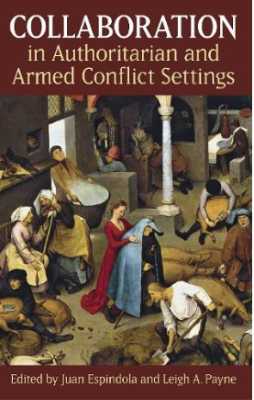
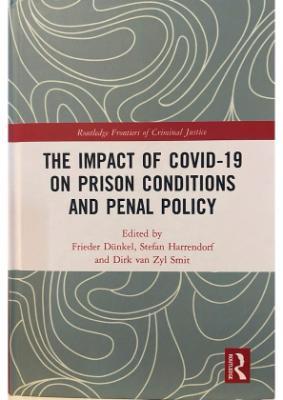
- Róisín Mulgrew, ‘Temporary Transfer of Persons in Custody’ in Max Planck Encyclopedia of International Procedural Law (Oxford University Press, 2022)
- Róisín Mulgrew, ‘International prisoners and the pandemic: seeking release, improved conditions and family contact before international criminal courts’ in Frieder Dünkel, Stefan Harrendorf and Dirk van Zyl Smit The Impact of Covid-19 on Prison Conditions and Penal Policy (Routledge, 2022)
- Róisín Mulgrew and Dirk van Zyl Smit, ‘International Human Rights and COVID-19 in Prisons: Medical Isolation and Independent Oversight’ in Frieder Dünkel, Stefan Harrendorf and Dirk van Zyl Smit The Impact of Covid-19 on Prison Conditions and Penal Policy (Routledge, 2022)
- Shane Darcy, ‘International Law and Collaboration: A Tentative Embrace’ in Juan Espindola and Leigh A. Payne (eds.), Collaboration in Authoritarian and Armed Conflict Settings, Oxford University Press, 2022, 244-267.
Articles
- Rory Kelly, "Reforming the sentencing and release of terrorist offenders" [2023] 10 Crim. L.R. 639-657.
- Parisa Zangeneh, 'Why the UN Should Establish an Independent and Impartial Investigative Mechanism into the 1988 Political Prisoner Massacre in Iran' (2023) OpinioJuris.
- Roisin Mulgrew, ‘Terminal Illness and Compassionate Release: Lessons for the ICC from the UN Tribunals and National Jurisdictions’ (2023) 21(1) Journal of International Criminal Justice 61-87
- Róisín Mulgrew, ‘Prisoner Lives Cut Short: The Need to Address Structural, Societal and Environmental Factors to Reduce Preventable Prisoner Deaths’ (2023) 23(2) Human Rights Law Review 1-25
- Philippa Tomczak and Róisín Mulgrew, ‘Making prisoner deaths visible: Towards a New Epistemological Approach’ (2023) 4 Incarceration
- Conor Hanly “Summary Jurisdiction and the Decline of the Criminal Jury in Victorian England” (2021) 42(3) Journal of Legal History 278-303
- Conor Hanly “Jury Selection in Victorian England” (2021) 60(1) American Journal of Legal History 36-55
- Conor Hanly “The Reporting of Child Abuse and Neglect in Ireland in an International Context” (2020) 34 (2) International Journal of Law, Policy and the Family 145-67
- Conor Hanly “Dependent Migration and Domestic Violence in Ireland: Implementing Article 59(1) of the Istanbul Convention” (2019) 42(2) Dublin University Law Journal 27-49
Blogs and media
- Donncha O’Connell, ‘Nursing home charges issue: Public Interest and public purse not the same thing’, The Irish Times, February 2023.
- Donncha O’Connell, ‘Resources need to be put into the promised reform of policing', The Irish Times, 6 December 2022
- Shane Darcy ‘How Ireland can play a role in prosecuting aggression in Ukraine’, RTÉ Brainstorm, 29 April 2022.
- Shane Darcy ‘Aggression by P5 Security Council Members: Tine for ICC Referrals by the General Assembly’, Just Security, 16 March 2022.
- Shane Darcy ‘Bloody Sunday at Fifty: Strasbourg, Saville, and the Search for Justice’, Irish Centre for Human Rights Blog, January 2022.
- Parisa Zangeneh, ‘International institutions should take “all measures” to uphold peace’ The Irish Times, 14.03.22
Conference papers
- Conor Hanly, "Dealing with Delays in the Processing of Rape Cases" at the IALT Annual Conference at Queens’ University Belfast, 12th November 2022.
- Charles O’Mahony, “Capacity and capacity assessments as a barrier to accessing justice” at the HUMANISING JUSTICE, Voices for Justice conference, Brussels 22.06.22
Submissions to International Bodies
- R. Mulgrew, ‘Older persons Deprived of their Liberty for Atrocity Crimes and Release’ Submission to the UN International Expert on the enjoyment of all human rights by older persons - Call for Contributions on older persons deprived of their liberty, April 2022
Public Engagement
- Rory Kelly, Justice Committee, "Public opinion and understanding of sentencing" (Oct 2023) pp16-17. This followed a written submission / appearing as a witness earlier this year.
- Rory Kelly, UNODC, "Responding to Illegal Mining and Trafficking in Metals and Minerals: A Guide to Good Legislative Practices" (2023) p.127.
- Rory Kelly, Justice, "Lowering the Standard: a review of Behavioural Control Orders in England and Wales" (2023) throughout. Rory also spoke to Justice as a subject expert.
- Rory Kelly, Parliamentary Office of Science of Technology, "The use of short prison sentences in England and Wales" (July2023) pp. 8 16, 25. Rory also spoke to POST as a subject expert / was an expert reviewer.
Deaths in Prison Worldwide
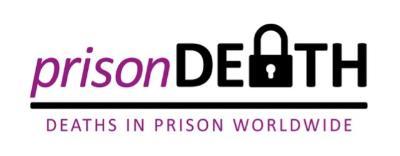
Preventable prison deaths are common in every country, causing significant harms to families, prisons and societies. prisonDEATH brings together a multidisciplinary team from the University of Nottingham (UoN), University of Galway, and the Norwegian University of Science and Technology (NTNU). Facilitated by the University of Nottingham Faculty of Social Sciences, this academic team are working in partnership with Penal Reform International and the international community, seeking to put the overlooked issue of prison deaths on the global penal reform agenda.
The team are working to examine definitions, trends and international standards on prison deaths, and to develop a research strategy on Reducing, managing and investigating (the harms of) prison deaths worldwide. Supported by prisonHEALTH and the Human Rights Law Centre at UoN, Dr Philippa Tomczak (UoN), Dr Róisín Mulgrew (University of Galway) and Dr Catherine Appleton (NTNU) will work with experts, the wider research team, practitioners and policymakers across law, sociology, penology, human rights, public health and bioethics to provide the first in-depth analysis of (preventable) prison deaths, seeking to reduce the harms of deaths in prison and improve the quality of prison life globally.
Policy Brief on Deaths in Prisons with Penal Reform International
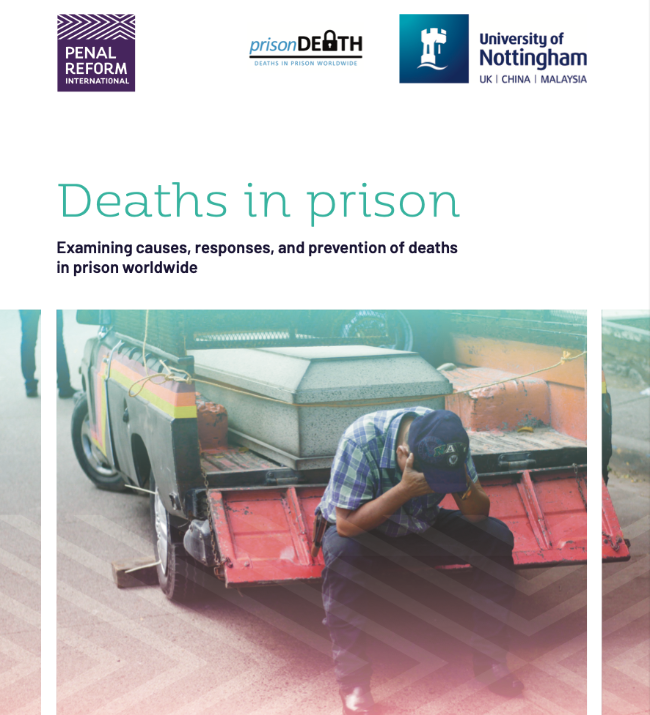
Dr. Mulgrew, as part of the prisonDEATH project, collaborated with Penal Reform International to produce a policy brief entitled ‘Deaths in Prisons: Examining causes, responses and prevention of deaths in prisons worldwide’. This policy brief represents ‘a call to action for the international community and national actors to strengthen their approach to deaths in prisons, to take pro-active measures to prevent loss of life and, when deaths do occur, to respond appropriately and conduct robust investigations in line with international human rights standards to identify any systemic concerns and prevent future harm’. Relying on research conducted by both PRI and the prisonDEATH team, it examines the key challenges in defining and collecting data on deaths in prisons, the leading causes of death across regions and measures adopted to prevent, manage, and investigate deaths in prison. The full report is available here.
Deaths in Prison Conference, St Luke’s Chapel, Oxford University, 2-3 November 2022
Dr. Róisín Mulgrew presented her paper, ‘Structural, Societal and Environmental Factors that contribute to prisoner deaths’ at this two-day conference, supported by the prisonDEATH team and organised by Dr. Philippa Tomczak’s UKRI team.
Dr. Mulgrew’s co-authored paper ‘Making Prisoner Deaths Visible: Towards a New Epistemological Approach, was presented at the conference by Dr. Philippa Tomczak. A pre-print of this paper is available on ResearchGate.
The full Deaths in Prison Conference report is available here.
See also coverage by Penal Reform International here.
'Review of Processing of Sexual Offences: A Rapid Review of Evidence' Project
Conor Hanly was awarded a Department of Justice Grant to research this project in September 2021.
The main objective of this project is to review and synthesise published evidence related to the processing of sexual violence cases for the purpose of informing practice and policy decisions relating to choke points and delays in rape cases proceeding through the criminal justice system.
EU Fundamental Rights Report on European Arrest Warrant safeguards in Ireland
Dr. Róisín Mulgrew acted the Legal Expert, along with Hannah Grene and José Henríquez, on a recent EU Fundamental Rights Agency project which examined the safeguards for requested persons under European Arrest Warranted Proceedings in Ireland. This submitted report is due for publication shortly.
TrialWatch Fairness Report Shows Flaws in Indonesia’s Blasphemy Law Courts’ Treatment of Individuals with Disabilities
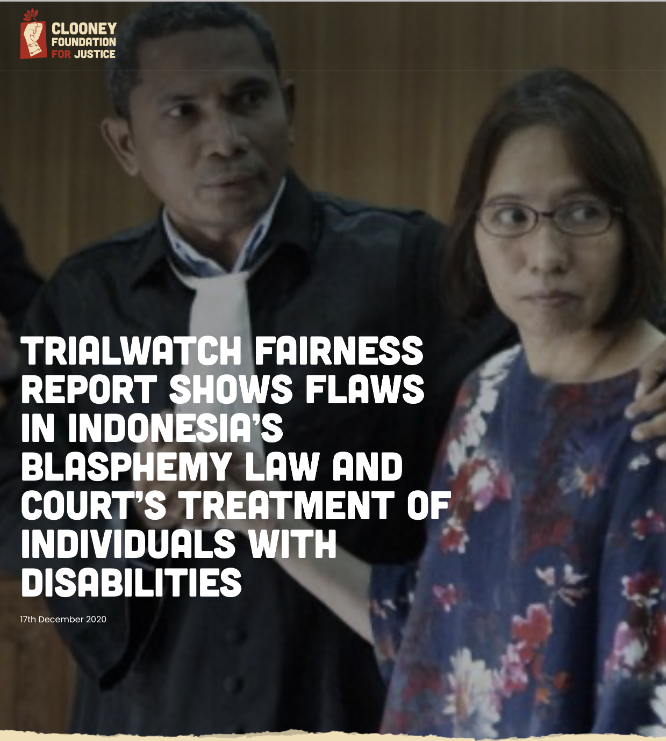
Dr Charles O’Mahony, is a member of Clooney Foundation for Justice’s TrialWatch ‘experts panel’. He authored a report for the TrialWatch initiative, which was published in 2020. The press release and full report are available https://cfj.org/news/trialwatch-fairness-report-shows-flaws-in-indonesias-blasphemy-law-and-courts-treatment-of-individuals-with-disabilities/#:~:text=A%20TrialWatch%20Fairness%20Report%20released,Rights%20of%20Persons%20with%20Disabilities
The TrialWatch Fairness Report found that Indonesia’s prosecution of Suzethe Margaret for blasphemy violated the UN Convention on the Rights of Persons with Disabilities. Ms Margaret is a woman who experiences psychosocial disability who was prosecuted for blasphemy as a result of entering a Mosque, carrying a dog, wearing shoes and having an altercation with the Mosque’s caretaker while she was unwell.
The report concludes that Indonesia’s blasphemy law permits convictions “on the basis of ‘subjective feelings of offensiveness’” and is inconsistent with the rights to freedom of expression and religion, as well as with non-discrimination norms. TrialWatch experts assign a grade of A, B, C, D, or F to the trial reflecting their view of whether and the extent to which the trial complied with relevant international human rights law. Dr. O’Mahony gave the proceedings a grade of “C.” This trial took place against the backdrop of efforts to expand Indonesia’s blasphemy law and this is not the first time the law has been used to prosecute persons who experience psychosocial disability in Indonesia.
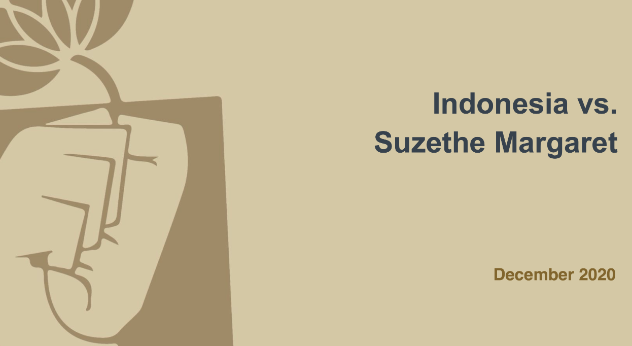
Meet the Researcher
Eilís Ní Chaoimh
Wednesday, 10 April 2024
On 5th April 2024, the Minister for Justice appointed Dr. Conor Hanly to the inaugural Board of Cuan. Cuan is the statutory body dedicated to tackling and reducing domestic, sexual and gender-based violence. Minister McEntee stated that she was ‘delighted that people with such experience and knowledge have been appointed to the Board. In supporting Cuan to deliver on its functions, their commitment and contribution will be a key element to delivering real and positive change for victims and survivors and for society more broadly’. Dr. Hanly is also on the Board of the Galway Rape Crisis Centre.
Wednesday, 10 April 2024
Dr Charles O’Mahony and Dr Róisín Mulgrew were appointed by the Chief Inspector to join the Office of the Inspector of Prison’s Expert Panel in August 2023. Their nomination reflects their specialist knowledge and professional qualifications in this field. The Office of the Inspector of Prisons aims to support excellence in the delivery and outcomes in Ireland’s prisons through an independent programme of inspections and investigations. The Expert Panel may be asked to assist the Inspectorate in carrying out its statutory duties, including the inspection of prisons.










